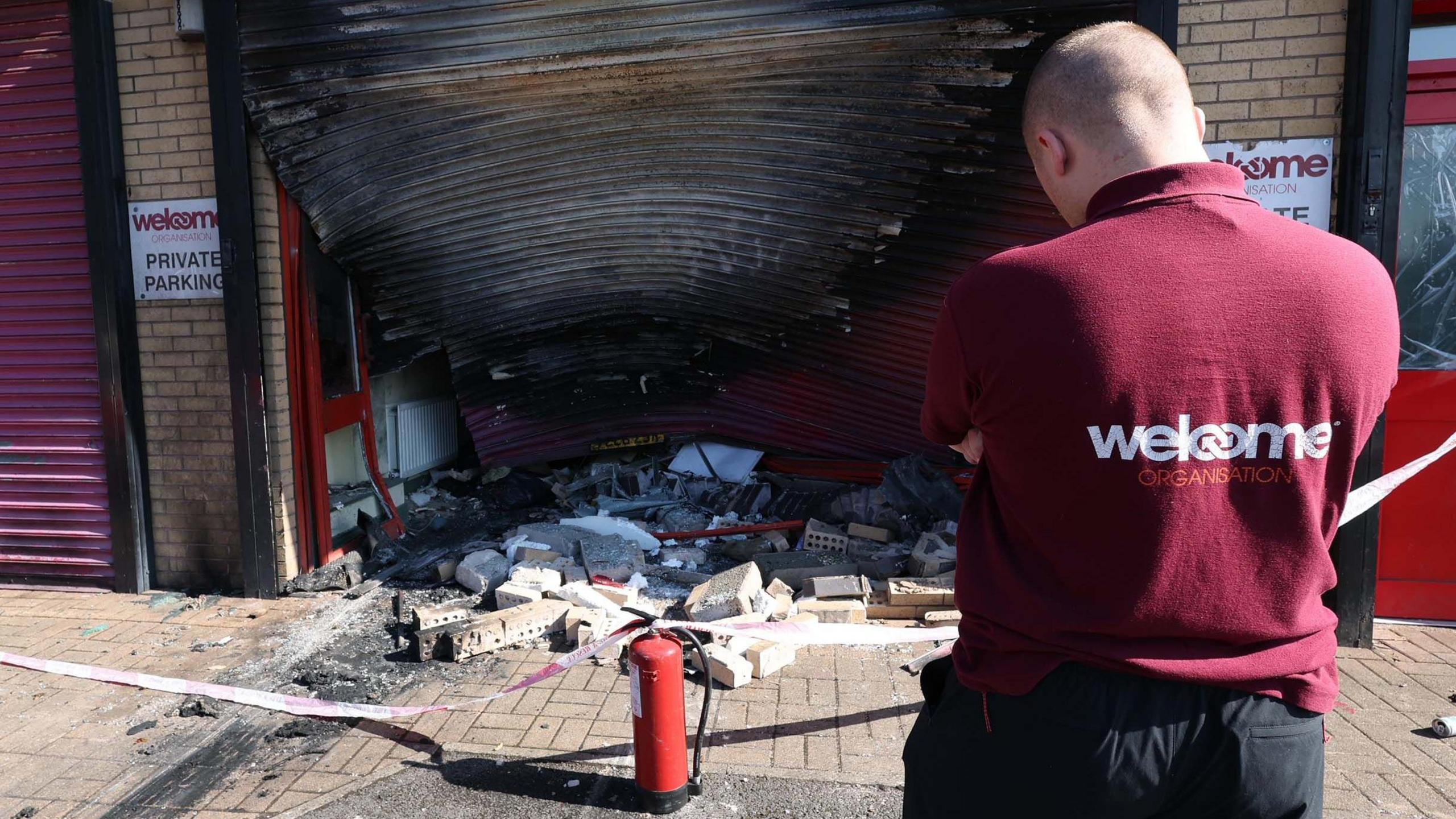'We’re kids, we’re not ready to be on the streets'
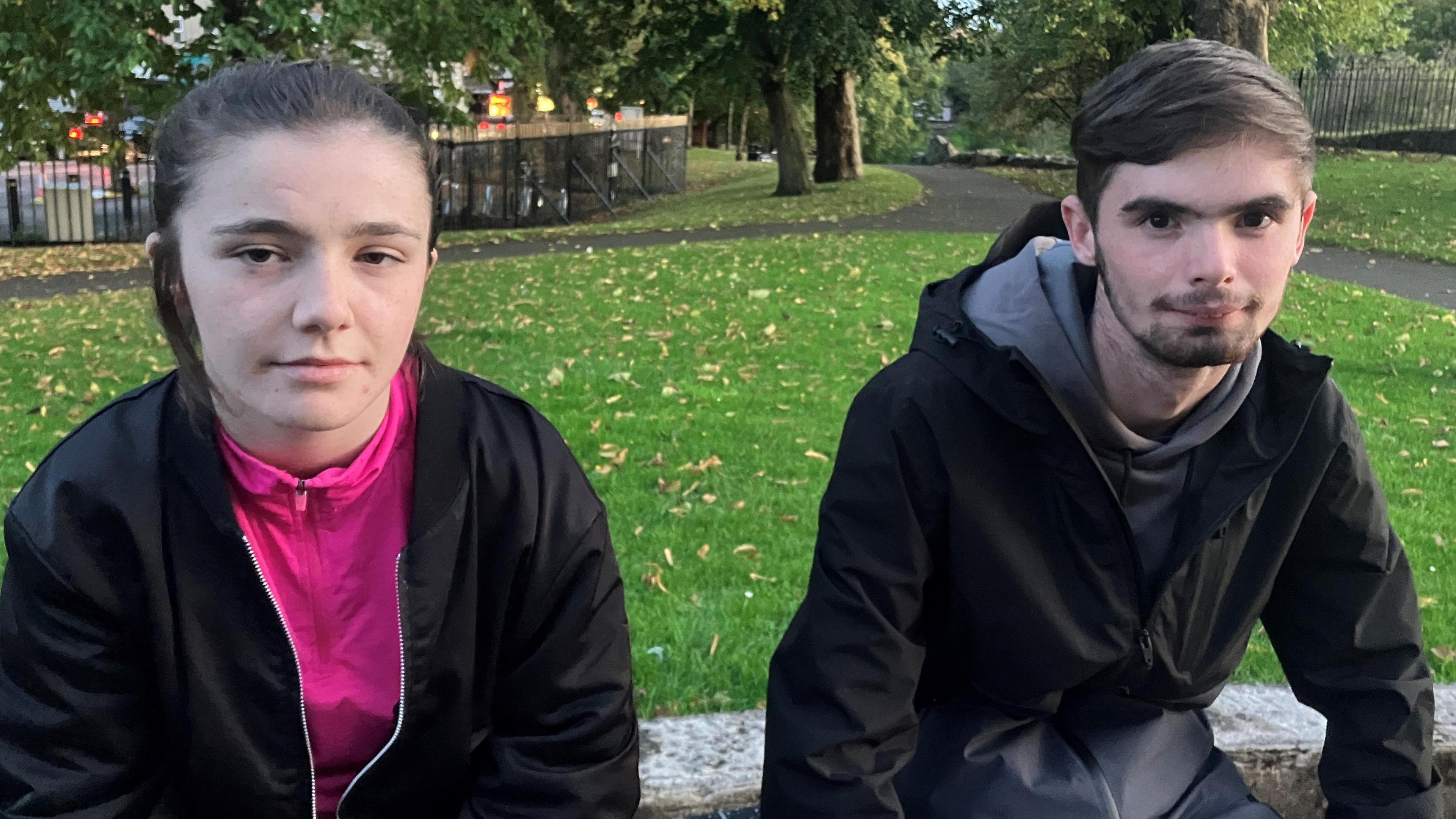
Kenzie and John have taken shelter in the Mater Hospital
- Published
Hospital emergency departments in Belfast are "turning into night shelters" for homeless people seeking warmth and safety, it has been claimed.
Spotlight spent time with some of those searching for a permanent home, including a teenage couple who are on a social housing waiting list.
Kenzie and John took refuge in the Mater Hospital's emergency department when their accommodation for the night fell through.
John, who has been homeless for almost a year, had a persistent cough at the time.
“We just want to be warm and safe, get two or three hours sleep so we don’t have to worry for a while,” said 18-year-old Kenzie.
“It’s safer than being on the streets with all these people around us.
“We’re still kids in our heads. To be honest, we’re not ready to be on the streets.”
The couple both spent much of their childhoods in care.
When Kenzie was 14 her mother died after a battle with drug addiction and depression.
She is terrified of falling victim to drugs, which she said are a constant presence in Belfast.
“You see needles, you see people taking drugs, you see people fighting over drugs, it's very frightening," she said.
John, who recently turned 19, said he would “travel around the world and back again” if it meant finding a home they could call their own.
“I haven’t felt safe since I lived with my nanny, and that’s when I was seven,” he said.
Chief executive of the NIHE Grainia Long said more needed to be done to support young care leavers like John and Kenzie.
“The role and responsibility here is on all of us, and on the Northern Ireland Executive, to ensure that we have the level of public finding for housing that is required over the next decade to ensure that those young people who feel failed by the system have a solution," she said.
Community and voluntary organisations have told BBC NI Spotlight that the system to support homeless people is in “complete chaos”, because of a lack of funding and reduction in vital services.
Communities Minister Gordon Lyons described the situation in relation to social housing as “totally unacceptable”, adding he was disappointed that capital funding did not exist to build more social homes.
The investigation also discovered that the number of people dying while waiting for social housing has increased in recent years.
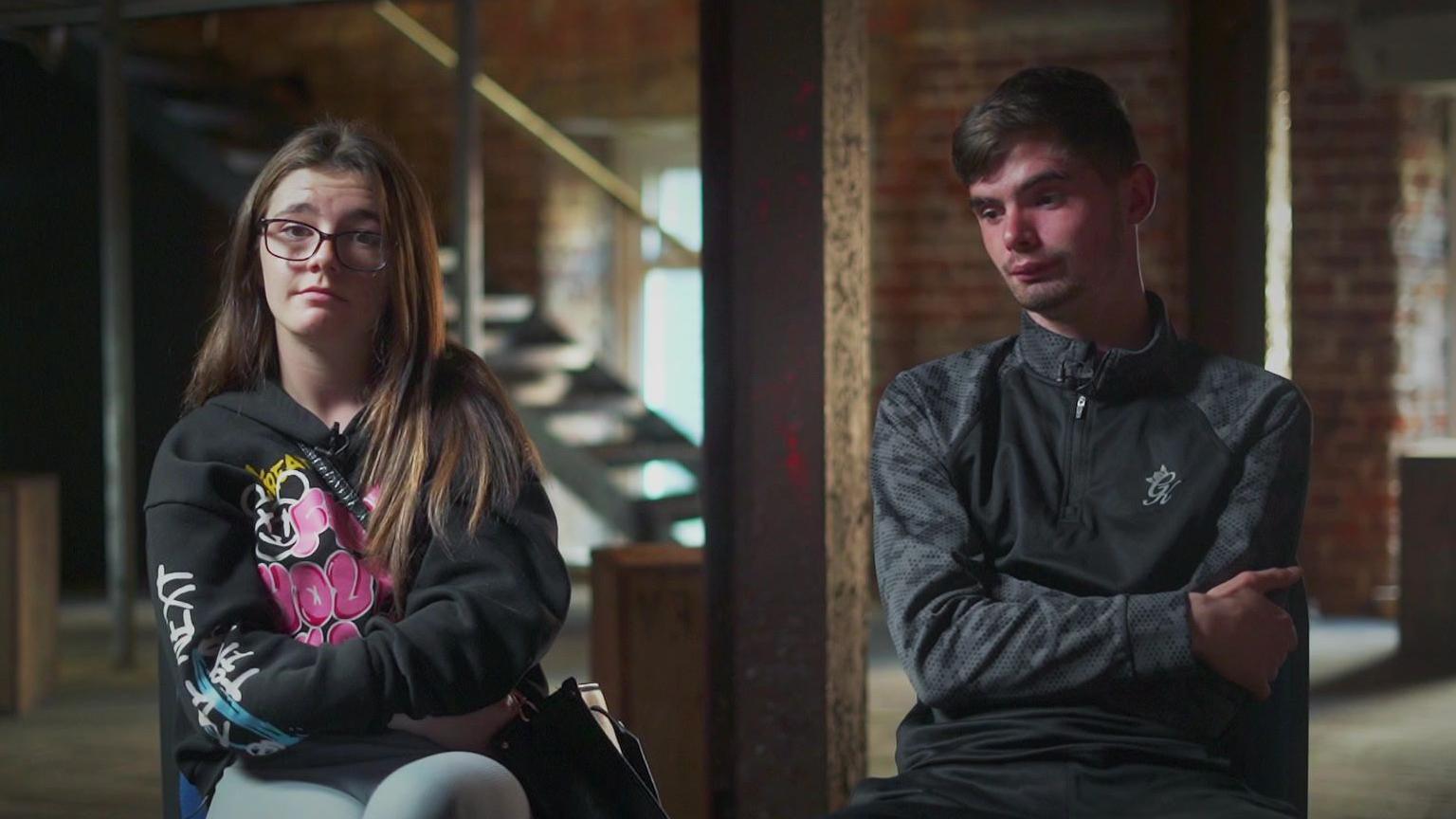
Kenzie and John have been homeless for almost a year
Founder of People’s Kitchen and Belfast city councillor Paul McCusker said voluntary organisations were regularly dropping service users at hospital emergency departments in a bid to keep them safe.
“There’s no other option for them. Speaking to staff from our local [emergency] departments, they clearly see it’s becoming a major problem,” said McCusker, who works closely with the local homeless community.
“My experience over the past few months sadly is our (emergency) departments are turning into night shelters.”
More than 30,000 households are currently registered as being homeless, according to Northern Ireland Housing Executive (NIHE) figures.
Providing more social, affordable and sustainable housing is among the key priorities in the Stormont Executive's draft programme for government.
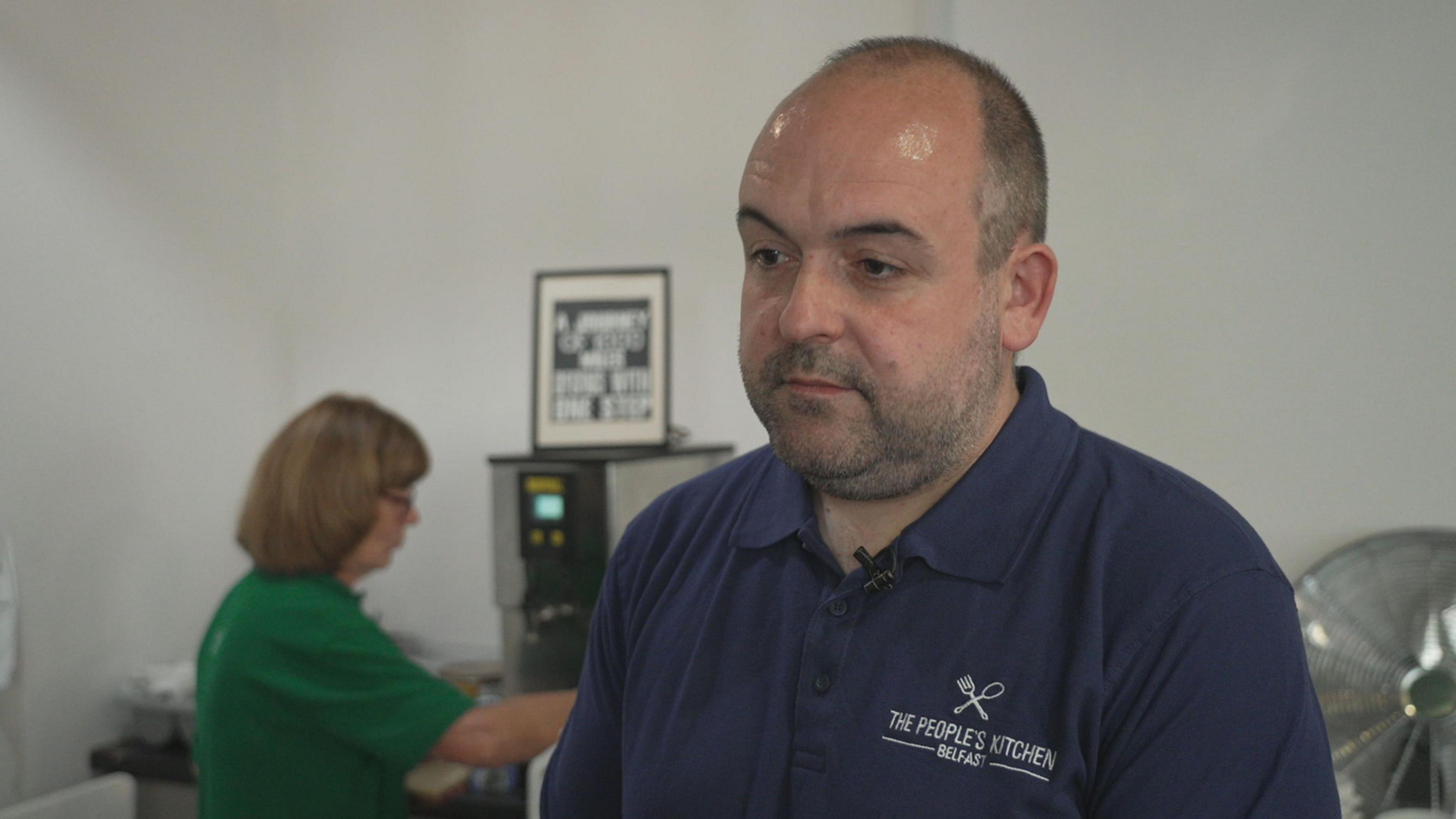
Councillor Paul McCusker, Founder of The People’s Kitchen in Belfast
Growing housing need
Through a freedom of information request, Spotlight can reveal that in 13 months before the end of July, 230 homeless people died while registered on the NIHE waiting list - an average of more than 17 deaths per month.
One hundred and forty-eight people registered as homeless died while waiting for social housing in an 11-month period in 2018 - an average then of just over 13 deaths a month.
Ms Long said the deaths were a reflection of “how we behave as a society, how we underfund housing and homelessness.”
The Department for Communities said that despite budget restraints there were 5,700 social housing units being built in Northern Ireland, with 1,400 due to be completed in the current financial year.
“As work continues to protect the range of essential services within the department’s remit, the minister will make the case for more funding to address the growing housing need," the spokesperson said.
Ms Long says by the end of the decade about 3,000 new social homes need to built every year for the next 15 to 20 years.
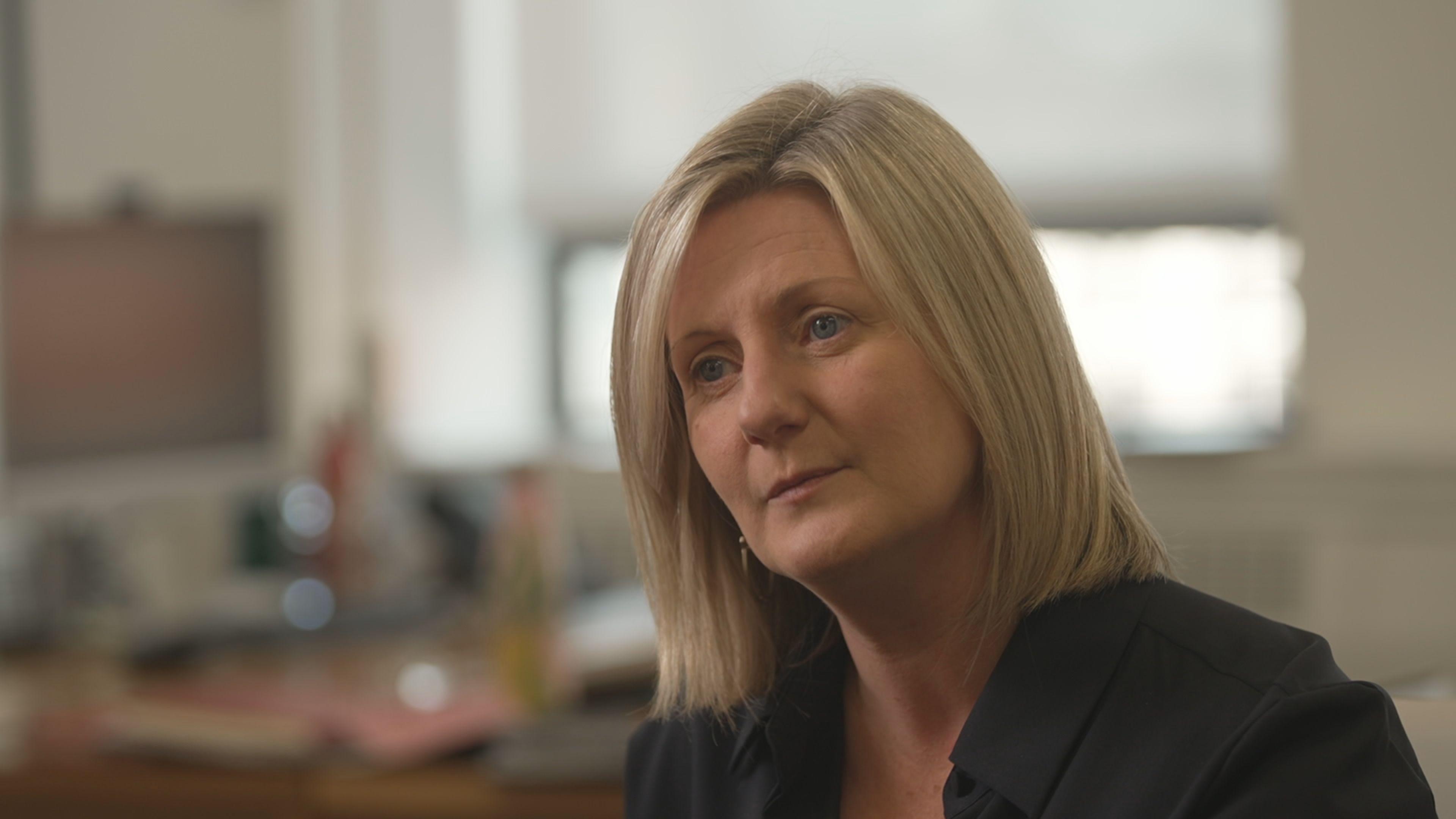
NIHE chief executive Grainia Long said the current situation is “not good enough”.
She added that the current situation was not good enough.
“I think we stopped viewing housing as important as health and education," she said.
“I can’t guarantee that the housing executive will be building again because it’s not my decision, but what I can guarantee is that if we are given the powers to build again we will be ready to go.”
The NIHE has only recently started to receive funding again for new build social homes, with just six properties built by the organisation in the past 25 years.
Instead, new social housing has been built by housing associations since the 1990's.
Associations, which use a mix of public and private funding, have built 20,000 houses since 2010.
Additional reporting by David Hunter.
Spotlight ‘Nowhere To Call Home’ is available on BBC iPlayer and is on BBC One NI on Tuesday at 22:40 BST.
- Published22 July 2024
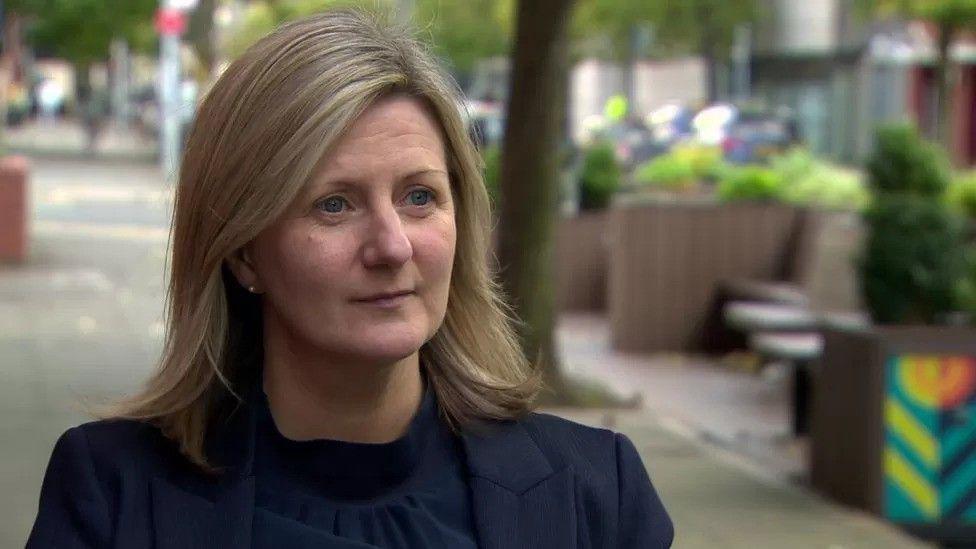
- Published23 July 2024
